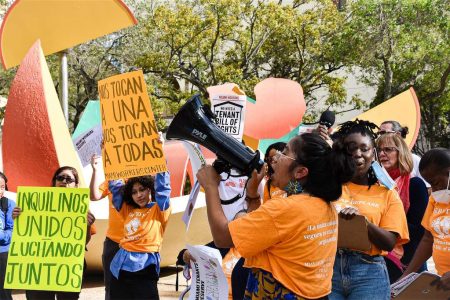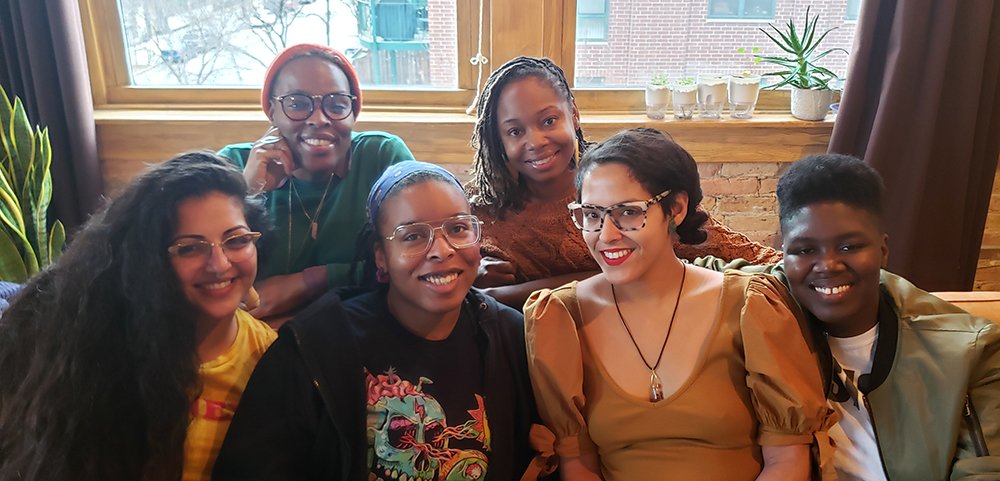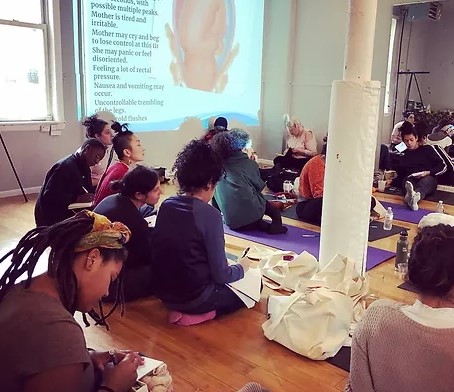
Immediate Needs
Meeting Today’s Needs; Shaping Tomorrow’s Laws
Throughout 2021, reproductive and birth justice organizations worked to meet the immediate needs of communities, including those strained by the multiple crises of Covid, systemic racism, and economic injustice. At the same time, they campaigned for policies and laws that will secure better access to the full spectrum of reproductive care and safer and healthier environments for families.
807,256 people were mobilized for organizing campaigns and advocacy efforts in 2021 by the organizations participating in this evaluation. Meanwhile, these same groups collectively provided direct services or mutual aid, most frequently in the form of food, clothing, household necessities, housing assistance, healthcare, and/or therapy or counseling, to 470,290 people.
Organizations effectively combined these strategies to deepen the effectiveness of each area of work. Meeting immediate needs raises organizations’ awareness of the challenges their communities face, resulting in better-informed policy platforms. In turn, building trusting relationships with the community results in stronger local coalitions that build political power and create the political will for policy change.
Meeting immediate needs while organizing to change systems (n=80). In 2021:

70%
of organizations provided direct services

91%
of organizations engaged in digital organizing

63%
of organizations provided mutual aid

83%
of organizations engaged in community organizing
2021 RJ Impact Stories of Change
We collected over 83 stories of changes made in 2021 from the organizations participating in the evaluation.
- 41% of the stories are about changes to laws or policies.
For example, the Illinois Caucus for Adolescent Health was instrumental in securing the repeal of a law that had previously required parental notification of abortion. - 26% of the stories are about changes in access to resources or care.
For example, Birthmark Doula Collective in Louisiana secured contracts to implement a pilot Medicaid reimbursement model for doula care, expanding resources for doula care and access to prenatal, birth, and postpartum support for those most likely to experience disproportionately negative birth outcomes. - 17% of the stories are about shifts in social norms or narratives.
For instance, the Georgia Chapter of the National Asian Pacific American Women’s Forum engaged the media after the murder, in Georgia, of six Asian American women in 2021. They presented research on the long history of discrimination and racially motivated violence so that the murders could not be framed as a one-off, individualized tragedies and worked in solidarity with Black and Latinx communities to push solutions that avoid increased policing. - 16% of the stories are about individuals’ skills, knowledge, or training.
For example, CHOICES in Tennessee established a midwifery fellowship for Black midwives to increase their skills and expertise in full-spectrum reproductive and sexual health care.

“In 2021, we finally invested in youth leadership in a way we had not done in the past, thoroughly in one specific program, with young people in the driver’s seat. Now we are taking the time to align with that value and go deeper into relationships, resourcing young folks as we invite them into leadership at virtually every level of the organization…. ICAH youth leaders successfully testified for the repeal of parental notification of abortion. Senator Sims specifically requested that ICAH youth leader Hannah testify at the Senate Committee Hearing. He had remembered Hannah from her powerful in-person testimony in the regular legislative session in 2019! Team ICAH was proud and honored to hear that; it felt like a win to see youth trusted, respected, and asked to be an essential part of the team.”
Looking specifically at changes in policies and laws, organizations that reported on policy work collectively engaged in advocacy on 379 policies or laws, including 193 “wins” (pro-reproductive justice laws or policies that passed/ harmful laws or policies that were blocked), 58 “losses” (efforts to pass pro-reproductive justice laws or policies that failed or effort to block harmful legislation that failed), and 126 advocacy efforts where the piece of legislation is still pending or a decision is still otherwise in progress.
Organizations achieved wins for reproductive justice when they contributed to or led efforts that resulted in the passage of a law or policy they deemed helpful to reproductive justice or in preventing the passage of a law or policy they deemed harmful.
Policy work is multi-phased, requires the work of multiple coalitions and organizations, and often unfolds over multiple years.
Some “wins” in 2021 were achieved after a decade or more of organizing.
In every case, many individuals and organizations contributed to the organizing work. In addition, there are instances, not well captured in the numbers, in which organizations do “holding the line” work. For example, neither securing nor blocking a new law, but instead working to maintain a status quo, often in the face of backlash.

